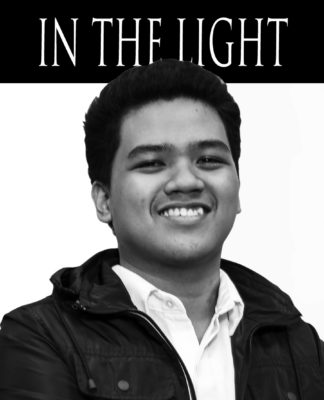THE UNIVERSITY’S no-smoking policy is not absolute after all as members of the Dominican community are not covered by the prohibition.
In an interview with the Varsitarian, Secretary General Fr. Winston Cabading said Dominican priests can smoke in their quarters. The Father’s Residence an Central Seminary are, strictly speaking, not under the UST administration. The residence is headed by a prior and the Seminary is headed by a rector who is the equal of the UST rector.
“If it’s a member of the Dominican community, then we have the Prior, (who is) the superior of the community and the Dominican Chapter to see to it that if ever there are fathers who smoke, it’s never in public,”
Meanwhile, the Office of the Secretary General (OSG) released the guidelines to govern the no-smoking policy last June 6.
According to the guidelines, student violators will be sanctioned as provided in the Student Handbook; faculty members shall be referred to the dean concerned for appropriate action; and non-academic personnel will be referred to the hospital administrator.
In addition, outsiders caught violating the policy shall be fined P300 for the first offense and P600 for the second offense. Third-time offenders will no longer be allowed to enter the University.
The Office for Student Affairs (OSA), the University Health Service (UHS), and the Office for Safety and Security will serve as implementing offices under the supervision of the OSG.
Aside from the security guards, the UST Red Cross (UST-RC) was deputized to catch violators.
Fr. Cabading also said the campaign is an attempt to create a culture of responsibility among students.
“Every student conscientious of his own obligation and responsibility has the right and obligation to call the attention of somebody who is violating, whether he is a friend, a teacher or an administrator,” he said.
Moreover, he said a smoking area in the campus is not an option.
According to Fr. Cabading, the students who belonged to the implementing body said once smoking areas are provided, you would not be able to take the place away from them should the University declare a full no smoking zone.
Meanwhile, in connection with the policy, the University will be having programs to help Thomasian chain-smokers who are serious about quitting.
The UHS and the UST Hospital will provide professional asistance.
Moreover, The UST-RC will promote the campaign through symposia and exhibits in the lobbies of the different colleges. The Ed-Tech will also participate by showing videos about smoking and its hazards. Ma. Karmina P. De Ungria

















